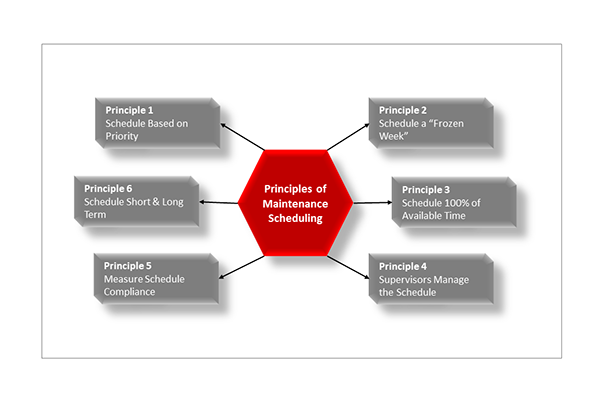The six principles of maintenance scheduling are key elements to implement when tackling a maintenance “to do” list efficiently. So says Raymond Chizu, sales developer at WearCheck Zimbabwe.
‘The six principles cover prioritisation of tasks based on urgency, incorporating a frozen week, using available time effectively, supervisors actively managing the schedule, and measuring it for compliance, and the principles also allow for long- and short-term scheduling,’ he said.
‘Implementing maintenance planning and scheduling and executing the scheduled tasks with consistency and discipline from all the players, is a sure way to boost productivity in any plant.
‘Additionally, the heightened efficiency boosts team morale. The stable working environment has a positive effect on the amount of work that is completed. When the maintenance team witnesses the scheduled preventative maintenance tasks adding value to a given operation, it smooths the company’s journey along the road to reliability. Inefficiencies such as unplanned equipment failure are reduced, allowing the maintenance teams to work proactively, rather than reactively.
WearCheck’s Technical Bulletin 83 covers the topic in greater detail. You can read the full article here:
https://www.wearcheck.co.za/shared/TB83.pdf
Please visit www.wearcheck.co.za, email support@wearcheck.co.za, or call WearCheck on +27 (31) 700-5460.
